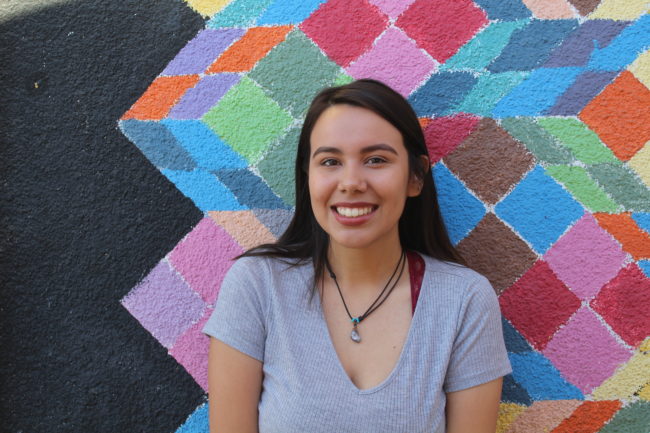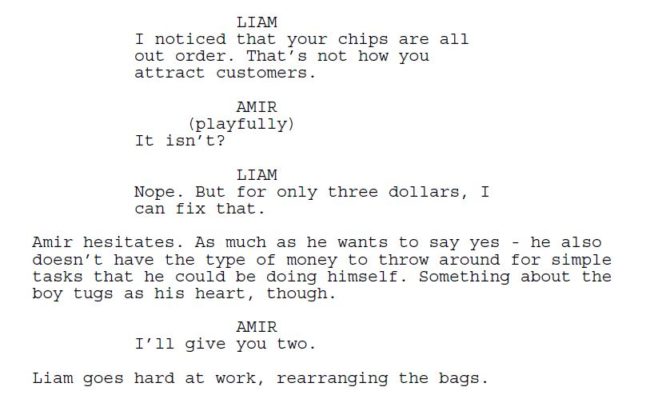Youth Spotlight: "Jumbo Shrimp" by Rosibel Villalobos
Rosibel Villalobos,18, and her poignant script for the short film Jumbo Shrimp came to us through Ghetto Film School, an award-winning nonprofit that identifies and educates young talent from local communities and provide them with the access, opportunity, and resources to pursue creative careers. Ghetto Film School specifically equips students for top universities and careers in the creative industries through two tracks: an introductory education program for high school students and early-career support for alumni and young professionals.

We were struck by Rosibel's talent and original voice, and not at all surprised to learn that she has been writing her entire life. She has made the transition from short stories to novels to scripts. And this fall, she will continue her journey as a screenwriter and will be attending UCLA's School of Theater, Film and Television.
Below is our interview with Rosibel about Jumbo Shrimp and her writing process.
What is this script about? Jumbo Shrimp is the story of Liam, a young boy who pushes himself to grow up too fast in order to help his single mother.

What inspired you to write this story? When I wrote Jumbo Shrimp, I had just gotten back from New York, where I spent two weeks last summer taking a film course. I was thinking a lot about being personal in my work and what that meant for me. I thought a lot about the guilt I felt growing up and the kids that I knew, and so Jumbo Shrimp and its protagonist, Liam, became a vessel for me to express that guilt in a way I never would be able to aloud.
What parts of writing this story did you find particularly challenging and why? When I realized how much I related to what Liam was going through in my script, I suddenly felt like I wanted to stop writing. It was difficult to be so vulnerable and open in my work and to then share that with others. I felt like I was showing everyone an old scar, one that I had hidden for so long, and it was frightening, but also so fulfilling.

What scene or moment are you most proud of in this script? The scene that I’m most proud of is one towards the beginning, where Elara is dropping Liam off at school. Very few words are exchanged by the two, and it’s such an everyday task, dropping your child off at school, but I think that for me it captured who the characters were at their very core. The way Liam takes note of what’s happening around him reflects the shame and guilt he carries with him everywhere, and Elara being late to a job interview, but walking her son to school, is such a small thing that also shows how much she loves him. I think it’s really the little things that count.

When and why did you become interested in writing? Words have always been something that I’ve loved. I’ve always been a writer, it’s a part of me. In elementary school, I’d spend recess writing stories for my friends. In middle school, I’d spend my summers up until 6 a.m. trying to write a novel. My progression into film and screenwriting felt natural.

What makes your voice unique? My experiences make my voice unique. The way I was raised, where I was raised, who I grew up around, the opinions and tastes that I’ve shaped myself—they make me who I am. And the person that I am always seems to sneak her way into the work that I’m producing, even if it isn’t always so obvious.
